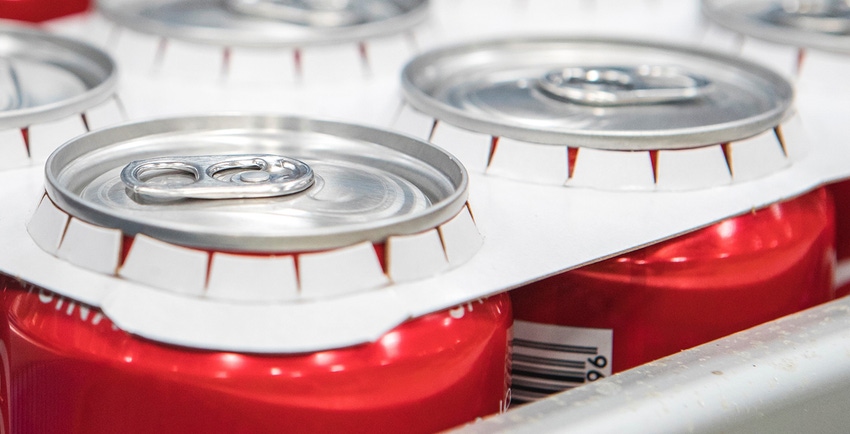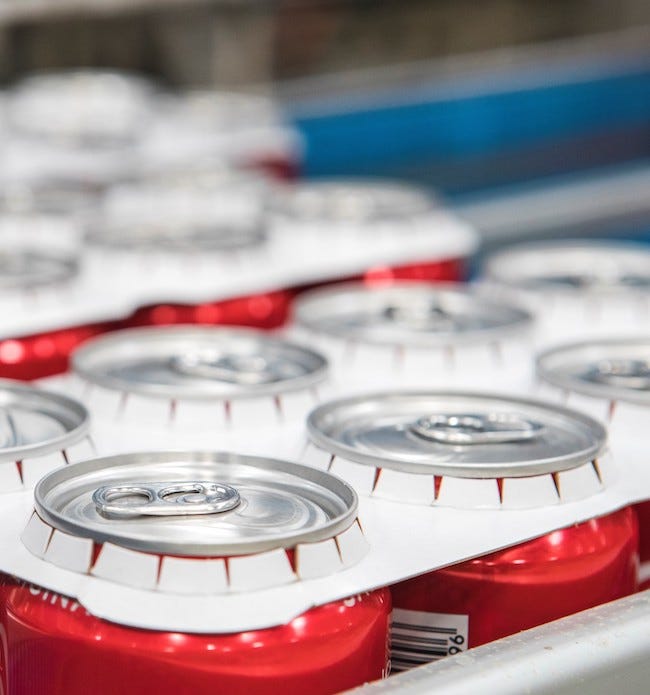Diageo isn’t the only consumer packaged goods (CPG) company to announce paperboard-based “plastic-free” bottles and packaging. Unilever, PepsiCo, and Coca-Cola are all on board.
August 13, 2020

Diageo isn’t the only consumer packaged goods (CPG) company to announce a paperboard-based “plastic-free” bottle. Unilever, PepsiCo, and Coca-Cola have all made moves to increase their use of paperboard and reduce plastics in their packaging.
“We believe in tackling plastic waste through innovation and collaboration,” said Unilever Chief R&D Officer Richard Slater. “We are going to halve our use of virgin plastic at Unilever, reducing our use of plastic packaging by more than 100,000 tonnes in the next five years. Joining forces [with companies like Diageo] to develop and test paper bottles is an incredibly exciting step forward, and we’re delighted to be working together to tackle one of the biggest environmental challenges of our time.”
PepsiCo also announced last month that it has joined the consortium of global consumer goods companies, including Unilever, to further develop and scale the world’s first recyclable paper bottle, initially developed by Diageo and Pilot Lite. Simon Lowden, Chief Sustainability Officer, PepsiCo, said: “Innovative solutions and partnerships are critical to driving meaningful progress toward a circular economy. The Pulpex consortium is well positioned to deliver sustainable packaging at scale and across industries, having an impact beyond what any organization could achieve alone. We’re proud to be a part of it.”
PepsiCo’s announcement stated that the company is working on “innovative solutions with peers pre-competitively through partnerships like this with Pulpex.” PepsiCo is also collaborating with the Carbios Consortium on enzymatic recycling, NaturALL Bottle Alliance on the development of a renewable bottle, and Danimer Scientific on compostable and bio-based flex films. PepsiCo said it expects to test its own branded paper bottles, based on Pulpex Ltd.’s design and technology, in 2021.
Coca-Cola European Partners (CCEP) announced on Aug. 11 the company’s introduction of CanCollar, an innovative paperboard packaging solution for multipack cans in Spain. CanCollar will replace the current Hi-cone plastic solution, “saving more than 18 tonnes of plastic annually,” said Coca-Cola’s press release.
|
The paperboard-based CanCollar will be introduced in Spain later this year. Image courtesy Coca-Cola |
Innovative packaging design is a core principle of Coca-Cola’s World Without Waste strategy. Through its collaboration with WestRock, an Atlanta, GA–based company that produces paperboard packaging solutions, CCEP will start to use the CanCollar paperboard can ring technology in the Balearic Islands in November of this year. CanCollar is certified by the Program for the Endorsement of Forest Certification (PEFC), an alliance of national certification systems.
CCEP has invested €2.6 million in its Barcelona plant to support this initiative. The installation of WestRock’s CanCollar Fortuna manufacturing equipment will enable multipack cans to be grouped in a sustainable and environmentally friendly way, with a process that does not require the use of glue or adhesives, said Coca-Cola’s announcement.
Joe Franses, Vice President of Sustainability at CCEP, said: “The agreement with WestRock exemplifies our clear commitment to reduce plastic in our secondary packaging. By the end of 2020, we will have removed more than 4,000 tonnes of hard-to-recycle plastic from our secondary packaging in Western Europe. It’s through collaborating on innovative packaging solutions like CanCollar that we are able to do this.”
These releases always highlight the fact that these new paperboard products are certified by the PEFC to allow us to take comfort in the fact that the trees being used for these new paper bottles, can rings, and other products come from well-managed forests. No trees were harmed in the making of this product.
It’s true that forests are growing at unprecedented rates, according to satellite photos, thanks to global warming and a slight increase in CO2, which promotes plant growth. If deforestation continues at a rapid pace, however, that could create a problem for forests, even those that are well-managed.
Once again, I have to use the great quote from Jon Huntsman. When I asked him about McDonald’s decision to replace EPS plastic clamshells with paperboard, he replied: “Use old dinosaurs, not new trees.”
About the Author(s)
You May Also Like





